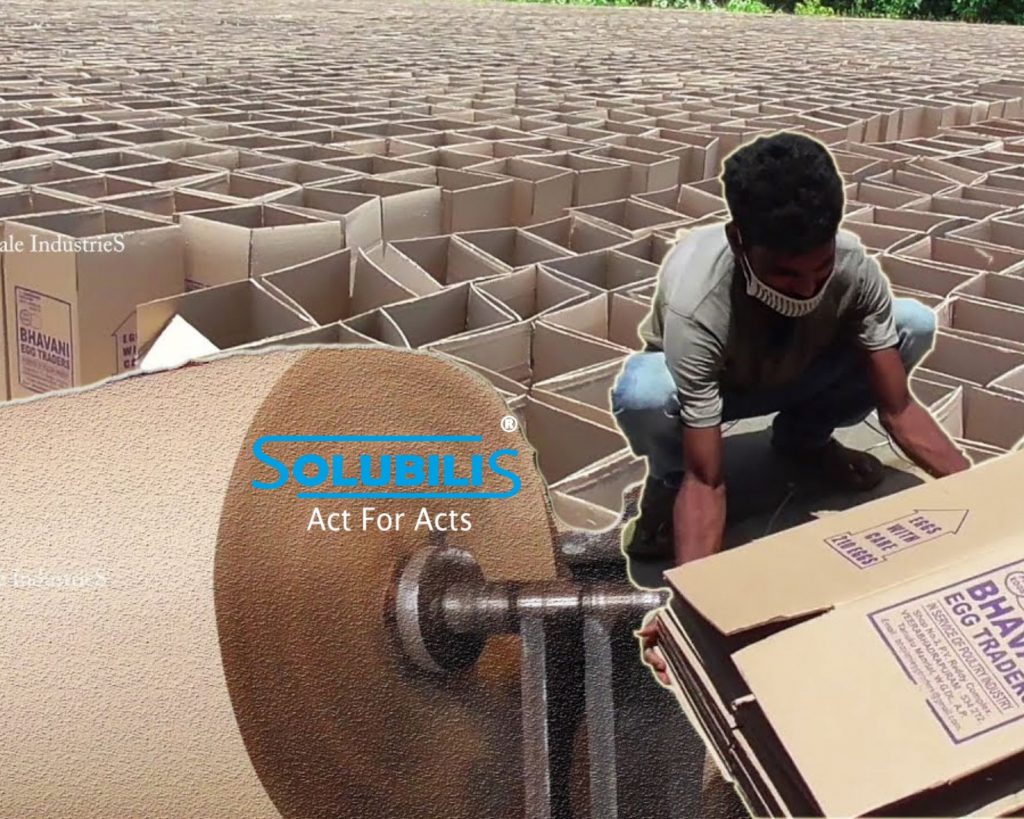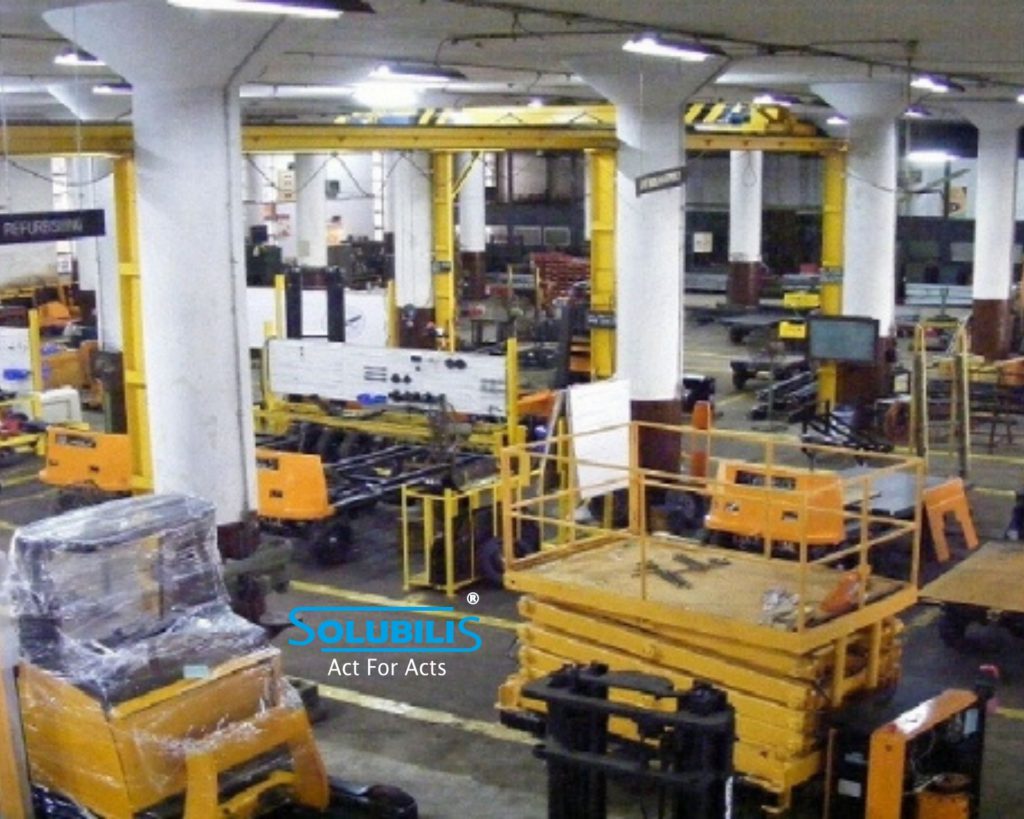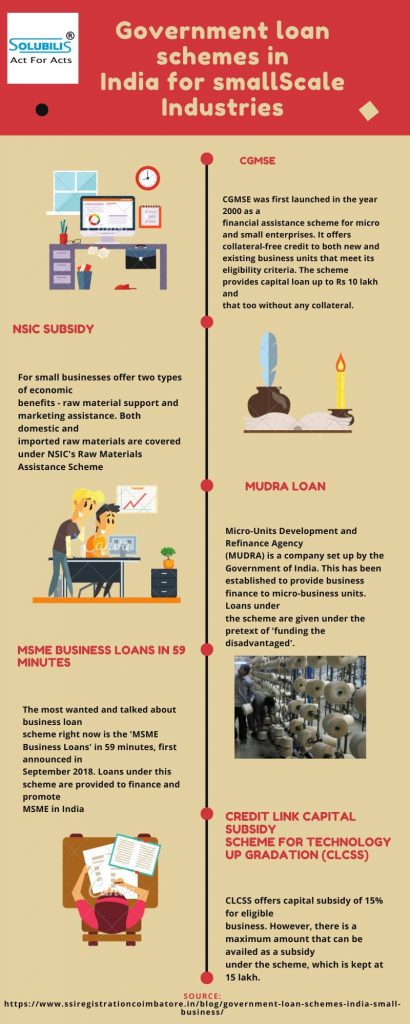India has recently identified as the only, truly emerging market in the world. Part of this growth has fueled by the country’s micro, small and medium enterprises. The SME sector contributes more than 40% to the total GDP and is an important source of employment for India’s growing population. Recognizing the importance of small scale industries and Medium enterprise growth in the post-demonetization era, the government has launched some new business loan schemes and boosted other existing companies. Here are the loan schemes for business from the Government of India that you can get for small business money.
CGMSE was first launched in the year 2000 as a financial assistance scheme for micro and small enterprises. It offers collateral-free credit to both new and existing business units that meet its eligibility criteria. The scheme provides capital loan up to Rs 10 lakh and that too without any collateral for Small Scale Industries.
However, credit above Rs. 10 lakhs for all credit facilities up to Rs. 1 crore . Assets created by a lending facility, which have association with a business unit, also have considered security. It happens when the loan amount is more than lakhs 10 lakhs. The scheme has finance by various public and private sector banks covered under the Commercial Loan Scheme.
Credit Guarantee Fund Scheme for Micro and Small Business

National Small Industries Corporation Subsidy
NSIC subsidies for small businesses offer two types of economic benefits – raw material support and marketing assistance. Both domestic and imported raw materials have the coverage under NSIC’s Raw Materials Assistance Scheme. Under marketing support, SMEs have the fund to increase their competitiveness and market value of their products and services. NSIC has main focus on funding small and medium enterprises that want to improve / grow their product quality and quantity.
MUDRA Loan
The Micro-Units Development and Refinance Agency (MUDRA) a company set up by the Government of India. This has established to provide business finance to micro-business units and SSI. Loans under the scheme are under the pretext of ‘funding the disadvantaged’. Since small companies and start-ups owe largely on their own devices to finance their venture, the government has envisioned such ventures as low-cost credit.
Mudra loan defined as a refinanced business loan, which has coverage under this scheme by public sector banks, private sector banks, cooperatives, small banks, scheduled commercial banks and rural banks. Loans are usually have the grant in a micro or small business. The structure of currency loan is as follows,
Seeshu loan Rs. 50,000 / – Youth loan Rs. 10, 00,000 / –
Juvenile loan Rs. 5, 00,000 / –
MSME Business Loans in 59 Minutes
The most wanted and talked about business loan scheme right now is the ‘MSME Business Loans’ in 59 minutes, first announced in September 2018. Loans under this scheme are provided to finance and promote MSME in India. Both new and existing businesses acquires scheme for financial assistance. It is given up to ₹ 1 crore. The process actually takes 8-12 days to complete, while approval or rejection is granted within the first 59 minutes of the application. It is a refinancing scheme. In this refinancing five public sector banks will provide the funds. The rate of the interest depends on the nature of the business and credit rating. No information is given about the principal amount or interest submission subsidy.
To apply for a business loan under this scheme, one should have registration if GST, income tax verification. Also the verification bank account statements from last 6 months, ownership related documentation and KYC details.

Credit Link Capital Subsidy Scheme for technology up gradation (CLCSS)
The scheme allows small businesses and Small Scale Industries to upgrade their process through technological improvements. Technological improvement can be related to a number of processes in an organization, such as manufacturing, marketing, supply chain, etc. CLCSS Through the scheme, the government aims to reduce the cost of goods and services for small and medium enterprises, thus allowing them.
To keep prices competitive in domestic and international markets. The scheme is managed by the Ministry of Small-Scale Industries. CLCSS offers capital subsidy of 15% for eligible business. However, there is a maximum amount that can be availed as a subsidy under the scheme, which is kept at 15 lakh. Sole proprietorship, partnership companies, cooperatives, private and public limited companies come under the purview of this business loan scheme.
Latest Update

The Karnataka Small Scale Industries Association (KASIA) on Monday called on Chief Minister B.S. Yeddyurappa has been requested to set up an Industrial Township Authority (ITA) to manage industrial areas. The industry body had demanded the formation of ITAs in Pinya (Bengaluru), Mysore, Mangalore, Huboli and Belagavi. The association said the proposals have long been pending with the government. The proposal to set up the Pasia Industrial Township Authority has been pending with the government for two decades now, said Kasia president K.B. Arsappa said.
Another recent update is gradually due to the decline in the volume of orders for gold jewellery exports, the business of many small jewellery manufacturing units in Gujarat has declined. According to the Gems and Jewellery Export Promotion Council (GJEPC), exports of gold jewellery during the period April 2020 to January 2021 stood at 3.552 million, down 64% from the same period last fiscal year. Kasia’s representatives in the pre-budget talks on Monday asked the chief minister to set up new industrial estates through the public-private partnership (PPP) route. An earlier industrial policy had proposed this, but industry representatives said it never took off.
Estimates suggest that the Gujarat accounts for about 10% of the India’s jewellery exports. According to Manek Chowk Choksi Mahajan (MCCM), there are at least 30-40 wholesale jewellery manufacturing units in Ahmedabad, most of which are based on both domestic and export orders. Rajkot is yet another cluster where many such jewellery manufacturing units are located. MCCM President Chinubhai Choksi said many small and medium-sized manufacturing units outsource jewellery making operations. Such units are facing serious concerns in attracting revenue when domestic demand has failed to revive.
